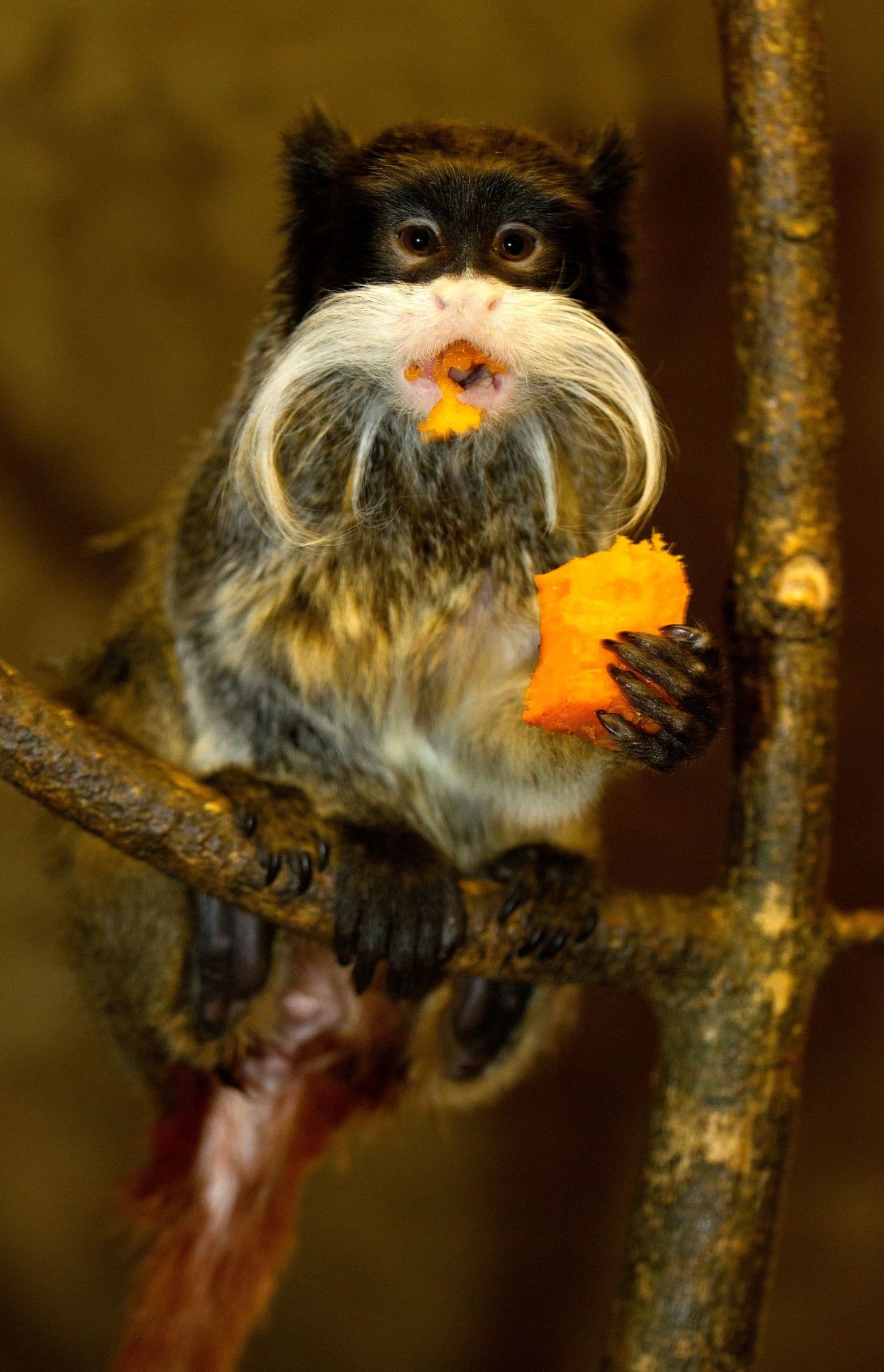Story highlights
Paignton Zoo in Devon takes bananas out of its monkeys' diet
Zoo says the high sugar content of bananas grown for humans is bad for monkeys
Since bananas were banned, the monkeys' coats and tempers have improved
Monkeys and bananas. It’s as natural a pairing as squirrels and nuts or movies and popcorn.
Not any more, says one zoo in southwest England.
Paignton Zoo in Devon is grabbing bananas out of its monkeys’ hands, giving them leafy veggies and sprouts instead.
This is no monkey-business diet fad, though.

The zoo says the high calorie and sugar content of bananas grown for human consumption – which are sweeter than those found in the wild – are bad for the monkeys’ health and can rot their teeth.
“Bananas grown for human consumption are full of sugar and calories, and bear no relation to fruit grown organically,” said zoo spokesman Philip Knowling.
“Life in the wild is hard work and in a zoo you can sometimes look after the animals too well and it isn’t good for their health.”
Thicker, better fur
Humans can continue gobbling up their bananas, just keep them away from monkeys.
“Sweet and juicy bananas are good for humans but not for monkeys,” Knowling said. “Animal nutrition has become a problem. Bananas and monkeys is a bit of a cliche, but they’re not a good combination.”
The zoo has not been able to find a supplier for the kind of wild-grown bananas that would be more suitable for the monkeys, he said. So, it decided it was time to put them back on the shelf.
The zoo has seen “definite changes” in the monkey’s behavior since the bananas were slowly withdrawn from their diet, Knowling said.
“We’ve noticed a net improvement in their coat and their fur is thicker and better. Some of the smaller monkeys are less aggressive,” he said.
Thailand’s annual ‘monkey buffet’
Diabetes risk
According to the zoo’s head of conservation, Amy Plowman, the bananas’ high sugar content could cause the monkeys to develop diabetes or similar conditions.
“It can also cause gastrointestinal problems as their stomachs are mostly adapted to eating fibrous foods with very low digestibility,” she said.
Zoos are getting smarter in the way they feed their captive animals.
Rather than throw in ready chopped and prepared food, many now try to make the animals “work” for their calories by searching for scattered foodstuffs or doing puzzles to release treats.
This is just the next step, Plowman said.
Knowling said there was no obvious sign that the monkeys were missing the fruit. In fact, they could well be happier without the extra sugar.
“Smaller monkeys such as tamarins and marmosets are highly strung animals and live in tight-knit social groups which can be quite aggressive at times,” said Matthew Webb, senior head keeper of mammals.
“Reducing the sugar in their diets has calmed them down and made their groups more settled.”



